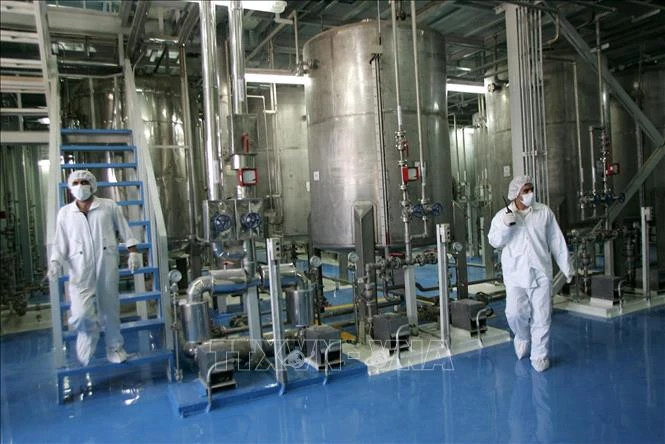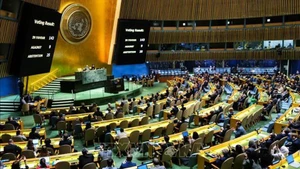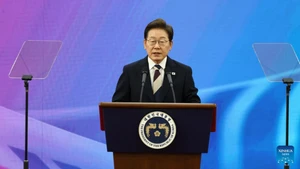Director General of the International Atomic Energy Agency (IAEA) Rafael Grossi has just criticised Iran’s move to bar many inspectors assigned to the country, causing obstacles for the IAEA in monitoring Tehran’s nuclear activities.
According to the head of the IAEA, this move affects the planning and regular inspection activities of the IAEA in Iran and pushes conflicts between the IAEA and Iran to a tense level. The IAEA Director General’s criticism came when Tehran announced it would not accept the designation of IAEA experts in Iran.
Iran’s move is seen as a tough response to the US and a group of three European countries, including the UK, France and Germany, which called on the IAEA to issue a new resolution, requiring Tehran to cooperate with the agency’s inspection activities and give an explanation for “traces of uranium” discovered at two locations in the Middle Eastern country. In November 2022, the IAEA passed a resolution, requesting Iran to urgently cooperate with the agency, in the investigation of the existence of uranium at two sites in Iran, which the agency said had not yet been declared.
Tehran also announced it will increase the purity of enriched uranium to 60%, although lower than the 90% needed to make nuclear weapons, it is much higher than the 3.67% limit committed by Iran in the nuclear agreement, also known as the Joint Comprehensive Plan of Action (JCPOA).
This is the agreement that Iran and the P5+1 group (including five permanent members of the United Nations Security Council, namely the US, the UK, France, China, and Russia, plus Germany) signed in 2015. According to this agreement, Iran agreed to limit its nuclear activities in exchange for lifting sanctions. After Iran increased its uranium enrichment activities, Western powers expressed dissatisfaction with accusations that Tehran was delaying and obstructing the investigation process. The West also recalled that in 2022, Tehran disconnected several cameras installed by international inspectors, to monitor Iran’s nuclear activities.
Under pressure from the West, the Head of the Atomic Energy Organization of Iran (AEOI) Mohammad Eslami stated, that Iran will not fully comply with the 2015 nuclear agreement if sanctions on Tehran are not lifted.
Iran’s Foreign Ministry also criticised the West’s new sanctions, targeting individuals and entities of Iran as illegal, and warned European diplomats against what they called such “unconstructive behaviour”, which “does not serve their interests”.
The nuclear deal sets tough rules for Iran’s nuclear energy programme, notably limiting Tehran’s amount of enriched uranium.
However, the Iranian side explained that they were no longer bound by those rules because the US unilaterally cancelled the agreement in 2018 when US President Donald Trump re-imposed and even expanded sanctions against Tehran. The international community wants relevant parties to reduce tensions and conduct negotiations to restore the nuclear agreement for all parties’ benefit and peace and stability throughout the region and the world.
















